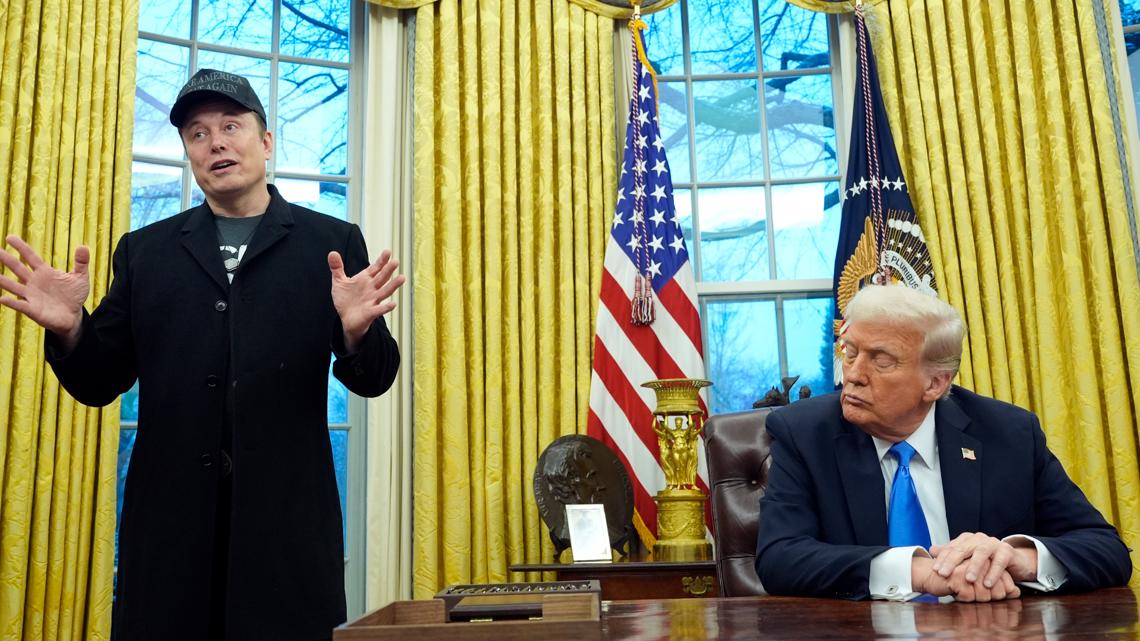
A federal judge indicated that the 14 states suing over the billionaire’s “nearly unlimited authority” within the government need to provide more substantial evidence of damage.
WASHINGTON — On Friday, a federal judge declined to swiftly approve a motion from 14 states aiming to prevent Elon Musk and the advisory group he leads from interfacing with federal government systems, asserting that they failed to demonstrate any irreparable damage.
“The order you are proposing is exceedingly broad,” said U.S. District Judge Tanya S. Chutkan. “It would effectively halt government operations.”
On Thursday, attorneys general from 14 states initiated a lawsuit in federal court in Washington D.C., claiming that actions by Musk and his Department of Government Efficiency (DOGE) to reduce government expenditures and significantly cut the federal workforce contravened the Appointments Clause of the U.S. Constitution. The lawsuit contended that Musk was exercising “virtually unchecked authority” without appropriate Congressional authorization or adequate oversight.
“Consequently, he has turned a minor role, previously tasked with overseeing government websites, into a chaotic force operating without restrictions and breaching the separation of powers,” the states asserted.
Chutkan, appointed by Obama in 2013 and who previously presided over the election subversion case against former President Donald Trump, held an emergency hearing on Friday to address the states’ request to prevent Musk and his staff from accessing sensitive government databases or directing the dismissal of federal employees. Representing the states, Adam Kirschner, a senior assistant attorney general in Maryland’s federal litigation unit, argued that Musk was navigating the federal landscape unchecked and instigating a “constitutional crisis.”
Federal judges nationwide, including those in D.C., have implemented temporary restraining orders limiting or prohibiting DOGE’s access to certain federal systems and halting attempts by the Trump administration to place thousands of foreign service employees on administrative leave. However, Chutkan remarked that the states’ request was much broader than previous orders and could effectively “grind the government to a halt.”
“You are essentially asking me to close down the government,” Chutkan stated.
“We are requesting you to rectify a constitutional violation that is unprecedented in this country,” Kirschner responded.
Former President Trump has publicly stated, and Justice Department lawyers have contended in court, that Musk’s role is purely advisory and requires White House approval for any actions he undertakes. The DOGE office, along with Musk’s position as its head, was established last month through an executive order to pursue what Trump referred to as his “DOGE agenda.” During its inaugural month, Musk and DOGE have claimed responsibility for cutting hundreds of millions from federal expenditures and dismantling the U.S. Agency for International Development (USAID).
While Chutkan appeared amenable to the argument that the states might eventually prove Musk has overstepped his constitutional authority, she consistently emphasized that they would not succeed in obtaining the order they sought without demonstrating imminent and irreparable injury. Despite several opportunities, Kirschner and Anjana Samant, deputy counsel for impact litigation at the New Mexico Department of Justice, could not provide specific instances of harm that would occur to the states over the upcoming 72 hours if Chutkan did not act swiftly.
“I cannot issue prophylactic temporary restraining orders!” Chutkan ultimately exclaimed.
Chutkan requested the states to submit a proposed order by 5 p.m. on Saturday for her review, without any guarantees of approval from her side.
This hearing was just one among several conducted in the D.C. federal courthouse on Friday, with plaintiffs seeking judicial intervention to block or reverse decisions made by the Trump administration. While Chutkan evaluated the states’ arguments, U.S. District Judge Ana Reyes was in a different courtroom considering a complaint from eight federal watchdogs claiming they were unlawfully dismissed by Trump. Earlier, U.S. District Judge John Bates discussed a case aimed at blocking Musk and DOGE from accessing sensitive information at the Department of Labor. Like Chutkan, both judges expressed skepticism toward the claims and took no action on Friday.









